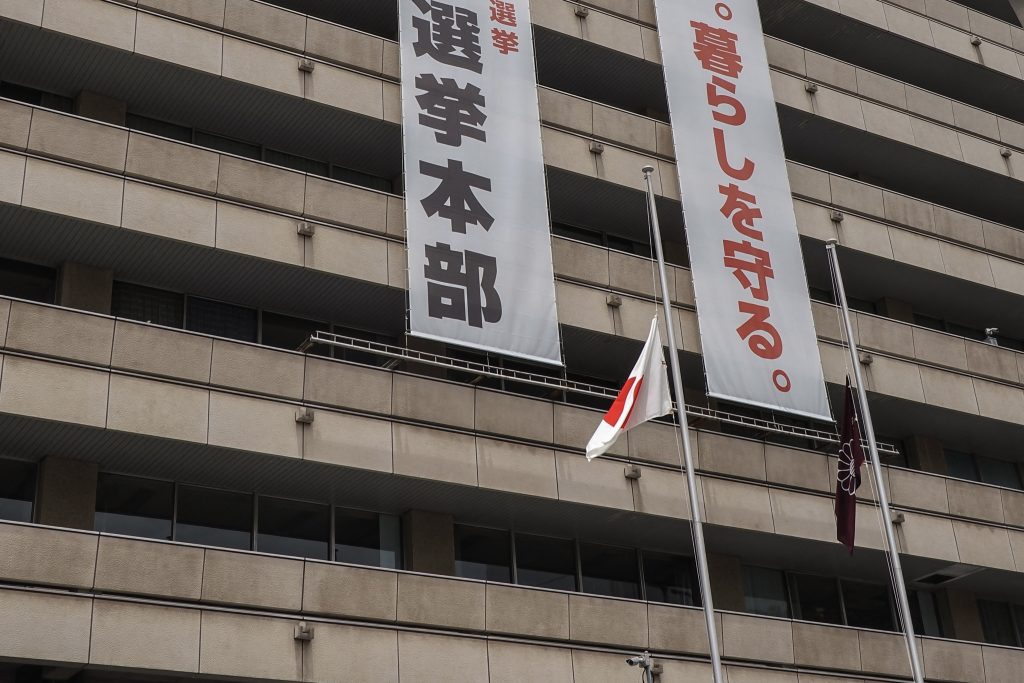
- ARAB NEWS
- 01 Aug 2025

TOKYO: The Liberal Democratic Party won the majority of seats in the prefectural assembly elections held in 41 of Japan’s 47 prefectures Sunday after achieving similar results in the two previous such elections.
A total of 1,153 candidates were elected from the party in the elections, held nationwide except in Iwate, Miyagi, Fukushima, Ibaraki, Tokyo and Okinawa prefectures as part of the first round of unified local polls.
The average voter turnout came to a record low of 41.85 percent, down from 44.02 percent in the previous unified elections in 2019. The voting rates marked record lows in 30 prefectures.
Also on Sunday, city assembly elections were held in 17 ordinance-designated big cities.
Regional political party Osaka Ishin no Kai and its affiliate, national party Nippon Ishin no Kai (Japan Innovation Party), secured 124 prefectural assembly seats in total, double the number of seats they had before the elections.
In Osaka Prefecture and its namesake capital, Osaka Ishin won the majority of seats in both the prefectural and city assemblies.
On the other hand, Komeito, the LDP’s coalition partner, missed its target of having all its candidates elected due to defeats in the Aichi prefectural and Osaka city assembly elections. The party ended up securing 169 seats nationwide.
The LDP occupied a majority in 24 prefectural assemblies, capturing seats with no major problem though some LDP politicians were found involved with the controversial religious group known as the Unification Church.
In the Osaka prefectural assembly, however, the LDP secured only seven of the assembly’s 79 seats, overwhelmed by the success of Osaka Ishin.
The Ishin camp expanded its influence beyond its main political base of the Kansai western region.
Nippon Ishin newly won seats in the prefectural assemblies of Hokkaido, Tochigi, Kanagawa and elsewhere. The party secured 69 seats overall.
Osaka Ishin collected 55 seats in the Osaka prefectural assembly and 46 of the Osaka city assembly’s 81 seats. It obtained a majority in the city assembly for the first time.
The party also won the Osaka gubernatorial election in the prefecture and the mayoral poll in the prefecture’s namesake capital.
The Constitutional Democratic Party of Japan secured 185 prefectural assembly seats, the second highest among all political parties.
The Japanese Communist Party won 75 seats in total but lost seats in the five prefectures of Niigata, Fukui, Shizuoka, Fukuoka and Kumamoto.
The Democratic Party for the People clinched 31 seats, the Social Democratic Party three seats, and Sanseito four seats.
Seventy-eight candidates secured seats from minor groups, including Osaka Ishin, while 493 independent candidates were elected.
In the city assembly elections held in the 17 major cities, the LDP won 292 seats, the CDP 112 seats, Nippon Ishin 72 seats, Komeito 171 seats, the JCP 93 seats, the DPFP 14 seats, the SDP four seats, Sanseito three seats, and other groups including Osaka Ishin 92 seats. A total of 152 independent candidates also secured their seats.
JIJI Press